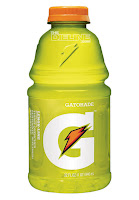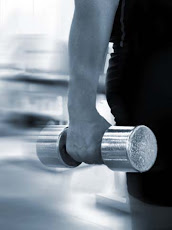
Fats
Many people say that you shouldn't eat fat, or that you should eat foods with very little fat. But studies by experts have shown that a good amount of fat is required for the brain to operate and function. In an athlete's diet, fats are the least important of the 3 main nutrients. Of the 3 main nutrients in a teen athletes diet, fats should be consumed less than both carbohydrates and proteins.
Like I said before, fats are required for the body to function. But an athlete shouldn't eat too much; because the best performance in sports can be achieved with a strong build. Fat does not help this, and when the human body has too much fat, the athlete's performance can be limited, and the normal practices that used to be easier are now harder, because there is more fat and less muscle.

Proteins
Like fats, proteins are also required for the body to function. Proteins are macronutrients that fuel and build the body's muscles. Proteins are very important because of this, and many sports like football, wrestling, and baseball require more muscle and strength than other sports, like tennis and curling.
After a workout, especially when lifting weights, the athlete's muscles that were worked during exercise will slightly rip. This is where the proteins come in. Proteins repair the broken tissue and build the muscle stronger than it was before the workout. This is how lifting weights builds muscle.
Many athletes drink protein shakes, or things like muscle milk. They do this because muscle milk and other sorts of protein shakes have a lot of protein and reap more benefits from the workouts that the athlete did. This way, the athlete will get more out of every workout that he/she does.
There are also many foods that contain a large amount of protein. A lot of meats, like steak, chicken, and fish are very healthy for the body. This is because they contain a lot of protein. Athletes of all ages should eat meats to rebuild and recover from strenuous workouts. Eggs contain a lot of protein, too.

Carbohydrates
Carbohydrates, also known as carbs, are also very important. They are important because they are the main nutrient that fuels the body, for both sports and daily activities. Without carbs, the human body will have no energy and couldn't function.
Before running a marathon, runners go on what is called a "carb fest." This is when a runner is preparing for a marathon, and to get enough energy for the big run, they eat a lot of carbs. They do this because the marathon is a very far distance, and if they don't have enough energy, they wont be able to finish the race.
There are many types of carbs, but they are split into 2 main categories: good carbs and bad carbs. Good carbs are the carbohydrates that are good and healthy for a person's body. The good carbs are the ones that give the body the best possible fuel that it can have. These good carbs are found in foods with high fiber, making it harder for your body to break it down. This is good because it creates and controls a steady blood sugar level through the day, instead of having a spike of energy, and then a crash, like the bad carbs do. This also means that these carbs are going to make one feel less hungry, therefore they are likely to eat less snacks/junk foods.
So what are some examples of food that are "good carbs:"
* fruits
* vegtables
* Whole grain foods
* nuts
* beans
Here are some examples of bad carbohydrates:
* Cake, doughnuts, other processed foods & desserts
* white bread/white rice: nothing healthy in it
* soft drinks (sodas)
* alcohol (beer & wine)
Sources:
* http://diet.lovetoknow.com/wiki/List_of_Good_Carbs_and_Bad_Carbs
* http://ghr.nlm.nih.gov/handbook/howgeneswork/protein














